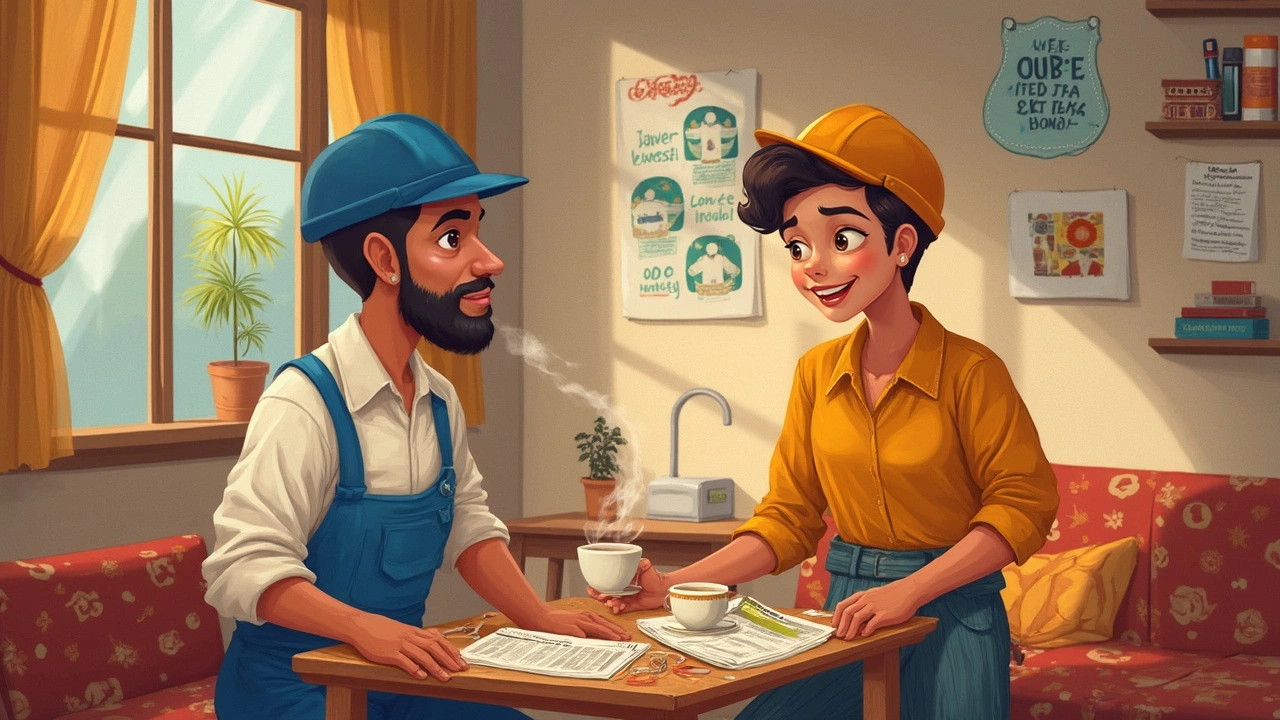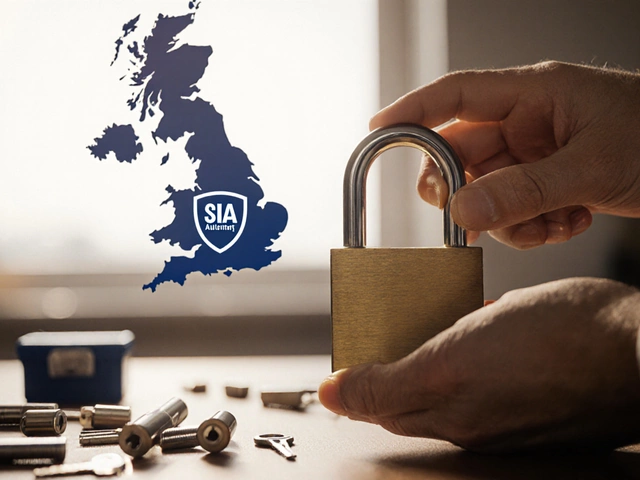
If you’re thinking about becoming a plumber, one of the big questions is, “How long are you actually at work?” This isn’t just about sitting through a daily grind at a desk. Plumbers often have a mix of steady hours and surprises—sometimes you get home right after dinner, sometimes it’s way later because a pipe burst last minute.
Most plumbers put in about 40 hours a week, usually spread over five or six days. But here’s the shocker: only around half of that time is spent actually fixing pipes or installing stuff. The rest? Driving, talking with customers, or waiting for deliveries. That’s the real breakdown a lot of rookie plumbers never hear about in class.
- Typical Plumber Work Hours
- Factors That Change the Schedule
- The Deal with Overtime and Emergencies
- Work-Life Balance as a Plumber
- Tips for Trainee Plumbers
Typical Plumber Work Hours
So, what’s a plumber’s normal shift? Most full-time plumbers clock in for about 40 hours a week. The typical schedule is Monday to Friday, usually from 8 a.m. to 5 p.m., with a lunch break in between. Some companies do slightly earlier starts, especially if they handle commercial work sites, and some stretch to Saturdays, mainly in busy seasons or for emergency services.
Here’s a quick look at the average weekly schedule for plumbers in the U.S.:
| Days Worked | Start Time | End Time | Total Hours/Week |
|---|---|---|---|
| Mon-Fri | 8:00 a.m. | 5:00 p.m. | 40 |
| Mon-Sat (Peak Seasons) | 7:00 a.m. | 4:00 p.m. | 48 |
| On-Call/Emergency | Varies | Varies | +10 (overtime) |
Keep in mind, not all of those hours are spent working with pipes. Plumber work hours include loading equipment, driving to jobs, filling out paperwork, and waiting around for materials or clients. Some weeks fly by; others, especially if you’re the new guy, feel like double time. If you work at a big company, shifts are pretty steady. If you do freelance or run your own gig, you can set your own hours but might work nights or weekends just to land more business.
If you’re in an apprenticeship, the hours are usually lighter—think 30 to 36 hours a week—but you’ll still learn how to handle long workdays. Once you’re fully licensed, those 40-hour weeks start to look pretty normal, although older plumbers will say the real fun begins when you get stuck with after-hours calls.
Factors That Change the Schedule
Plumbing isn't your usual 9-to-5 job. The hours can swing a lot, depending on where you work and what kind of plumbing you do. Here’s what actually changes your day-to-day schedule:
- Type of employer: If you work for a big company, you might get regular daytime shifts. Self-employed plumbers or those working for smaller crews often face more flexible—or unpredictable—hours.
- Emergency calls: No one schedules a burst pipe. Plumbing emergencies can mean working nights, weekends, or even holidays. On-call shifts are super common in this field.
- Type of plumbing work: Commercial plumbing projects (like schools or hospitals) sometimes need you early in the morning or late at night, so you don’t interrupt business hours. Residential work is usually daytime, but emergencies can hit anytime.
- Location: Busy cities often mean more calls and longer workdays. Smaller towns could be steadier, but travel time between jobs might eat up hours.
- Season: Winter usually brings more work because pipes love to freeze and burst when it’s cold. Summer can be slower—but not always.
To see this in action, check out the table below with examples of what different plumbers reported about their work hours in a 2023 survey by the National Plumbing Association:
| Plumber Type | Average Weekly Hours | Most Common Shift Start | On-Call Frequency |
|---|---|---|---|
| Company Employee | 40-45 | 8:00 AM | Once a month |
| Self-Employed | 45-55 | 7:00 AM | Weekly |
| Commercial Specialist | 35-50 | 6:00 AM | Varies |
Bottom line, the plumber work hours you get will depend a lot on your job setup, your boss, and the area you cover. Plan for some late nights and maybe a few calls while you’re eating dinner—especially if you’re the go-to guy for emergencies. Over time, you’ll figure out what fits your lifestyle best.

The Deal with Overtime and Emergencies
This is where plumbing gets unpredictable. Emergencies—like busted pipes at midnight or zero water pressure on a Sunday—are part of the job. Plumbers often have to be on call, especially in smaller companies or when they're just starting out. There’s almost always an extra paycheck for these chaotic moments, but it’s not all glamorous after-hours heroics. Sometimes you’re giving up plans or sleep to save the day.
On average, plumbers work about five hours of overtime per week, according to a 2024 survey by Indeed. But during the rainy season or cold snaps, that number can easily double. And if you’re the new guy? You’ll probably get more emergency calls than the senior plumbers.
Emergency work can pay really well—sometimes one and a half times your normal rate. That’s why a lot of plumbers actually count on overtime and call-outs for a good chunk of their income. Here’s a quick look at how overtime and emergencies stack up in a regular plumber’s schedule:
| Situation | Extra Hours Per Week | Pay Rate (Typical) |
|---|---|---|
| Normal Week | 0-5 | Standard |
| Peak Season | 5-15 | 1.5x - 2x |
| 24/7 Emergency On-Call | Varies (up to 24h) | 1.5x - 2x + call-out fee |
One tip: if you’re just starting out, see if your boss rotates on-call duty or drops it all on the newbies. Ask how overtime is paid—some companies offer bonuses, some pay cash, and some just add hours to your next check. Don’t be afraid to speak up about your schedule before you sign any contract.
If you want a plumbing job that’s more 9-to-5, aim to work for a commercial outfit or facilities management—these rarely require overnight emergencies. But if you’re okay with a bit of chaos and bigger paychecks, residential plumbing is where you’ll see both the headache and the rewards from emergencies and overtime.
Remember, handling plumber work hours in emergencies is all about balance—and knowing when to grab the overtime and when to say no if you’re burning out.
Work-Life Balance as a Plumber
When you picture life as a plumber, you might hope to clock out every day at the same time, but that’s not always how it pans out. Plumbers have to juggle a mix of regular jobs, last-minute calls, and sometimes overnight emergencies. Some days end early and others can drag out—especially if you get called for a major leak right before you were about to head home.
For most, balancing work and personal life depends on who you work for. Plumbers working for big companies usually get steady hours, like the classic 8-to-5. But if you’re working for a small business or running your own show, you might swap predictable hours for higher pay or more flexibility. Want weekends off? In big cities, it’s tough—homeowners and businesses need support every day, especially when something breaks.
Long hours and unexpected calls can sometimes be stressful. According to the U.S. Bureau of Labor Statistics, about 14% of plumbers work more than 40 hours a week. On the other hand, many report high job satisfaction because plumbing offers good pay and the chance to help people out of a jam.
| Work Setting | Average Weekly Hours |
|---|---|
| Large Company | 38-42 |
| Small Business | 40-48 |
| Self-Employed | 45+ |
Here are a few ways experienced plumbers keep their work-life balance in check:
- Set clear boundaries with clients about your working hours.
- Take advantage of slow periods during the year for time off.
- Share emergency shifts with coworkers so the same person isn’t always “on call.”
- Use scheduling apps to block out family events or personal breaks.
If you’re eyeing a career with flexible hours, consider joining a big company first. You'll get a set schedule to start, and you can always switch to self-employment once you know your groove. The key is figuring out what balance works for you. That’s the real secret to making a plumber work hours schedule fit your life, not the other way around.

Tips for Trainee Plumbers
Starting out in this trade? Here’s what nobody really tells you: your time on the job will be a mix of solving problems and plain old waiting around. If you want to get ahead, it pays to use those gaps productively.
- Plumber work hours are often unpredictable, so always keep a snack and water in your van. Those emergencies can turn a short job into a long haul.
- Don’t just watch—ask questions. Experienced plumbers actually like showing tricks of the trade. Pick up tips on things like thread sealing, joint testing, or how to price a quick job.
- Get comfortable with paperwork. Around 20% of your day might go into invoices or dealing with customer calls. Apps like ServiceM8 and Jobber can seriously speed that up—most pros swear by digital job tracking now.
- Try out different types of jobs early on. Residential jobs can mean simple fixes and friendly chats, while commercial gigs often pay more but demand weekend shifts or overnight calls. Figure out what fits your lifestyle best.
Here’s a quick look at how trainees generally spend a standard day—expect some curveballs though:
| Activity | Average Time per Day |
|---|---|
| Hands-on plumbing | 4 hours |
| Travel between jobs | 2 hours |
| Paperwork/admin | 1.5 hours |
| Tool prep/cleanup | 0.5 hour |
One last thing: never ignore safety, even if someone tells you to "just get it done." Every year, thousands of plumbers end up with preventable hand injuries or slips because they rush. Always glove up, use those eye shields, and double-check ladders.
This might all sound like a lot at first, but after a few months you’ll fall into a routine. The guys who stick around are usually the ones who keep learning, don’t get rattled by a long day, and know when to step back and recharge.




